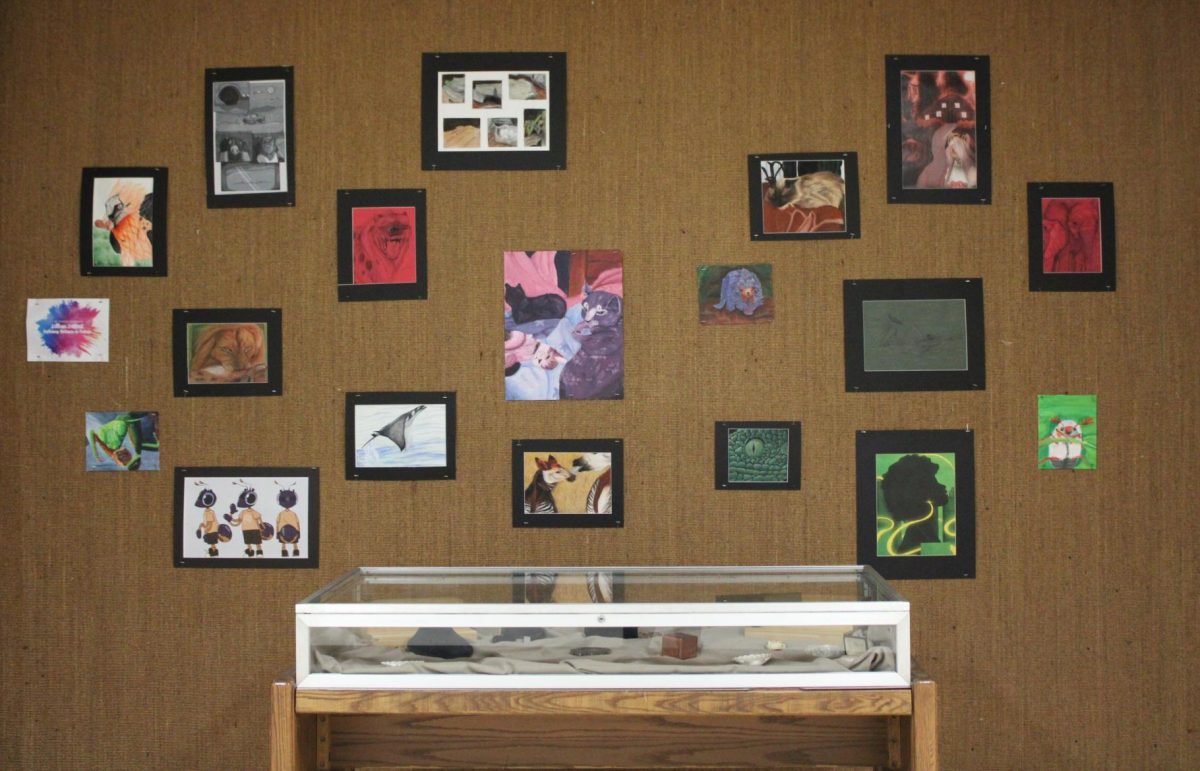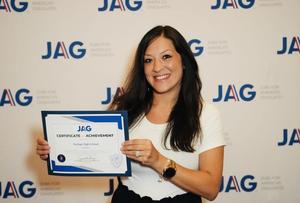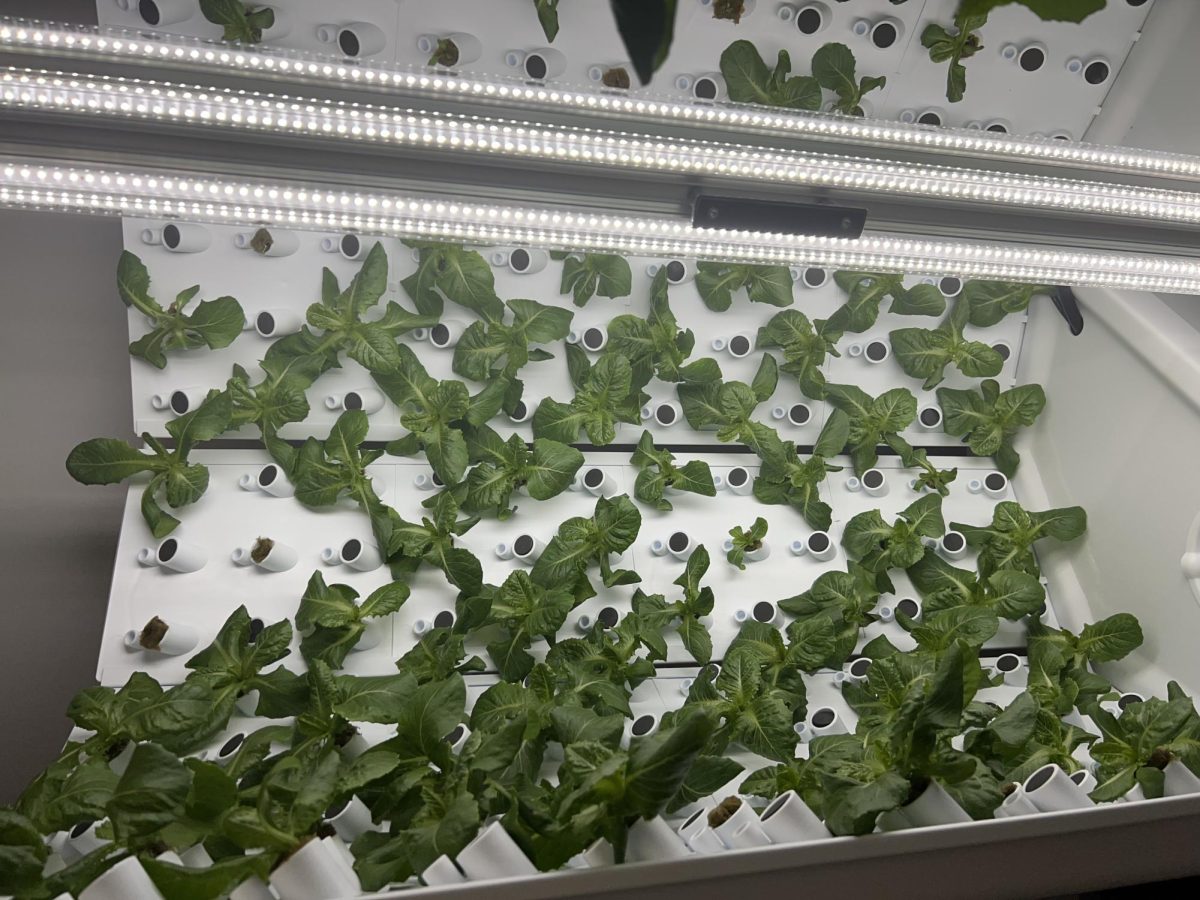Schools in Portage Township are taking a fresh initiative to grow food in an effective and fruitful manner with a new hydroponics garden that delivers fresh and healthy plants to Portage students’ meals.
The new program teaches students a multitude of subjects ranging from math to science, civics, entrepreneurship, agriculture, and even language arts. It also teaches students lifelong skills such as teamwork and leadership through project management, system maintenance, and communication.
“The hydroponic gardens not only enhance our meal program but also empower students with the knowledge and skills to lead in a sustainable and innovative future,” says Dawn Kelley, Director of the Food Service Department.
This project is in its first year, only starting in the beginning of this year and was made possible through a grant delivered by the Indiana Health Department and Local Food for School, a program funded by USDA. While Kelley led the initiative, she credits her collaborative team throughout the district.
This project has three hydroponic gardens, one in Portage High School’s culinary classes taught by Amy LeVien-Kalinov and Shelley Doering. Megan Monahan and Katie Marmino run a unit at South Haven Elementary, while the Food Service Department staff manage their own unit.
Apart from creating learning opportunities and delivering fresh greens, it is also a highly efficient and viable project. The hydroponic units come from Fork Farms, a hydroponic farming company. When the units are first assembled, the water reservoir, lighting, pumps, and grow trays are properly set. The reservoir is filled with water, pH levels are balanced, and the recommended nutrients are added. Seeds for leafy greens are placed in a growing medium, such as rockwool that keeps the seeds moist and warm.
When seedlings grow 1-2 inches in height, they are transferred into specialized growing cups to allow the roots to touch the water. After this, nutrient levels are adjusted and water level monitored, while an LED light provides sufficient light for 12-16 hours a day. In addition, staff and students do daily checks to record growth, prune, and ensure there are no issues, such as pest or nutrient imbalance.
“The cycle takes about 28 days and once it ends, we are able to harvest up to 25 pounds of vegetables. Growing 25 pounds of leafy greens in a Fork Farms hydroponic unit takes about 28 days and is an efficient and straightforward process,” Kelley said.
The hydroponic unit while still in early stages has gone through a couple cycles this year. The team chooses to grow leafy greens and herbs as they are the easiest to grow. However they also grow cherry tomatoes, a small variety of peppers, strawberries and cucumbers. Kelley mentioned that she hopes as time passes and experience is gained, they will be able to grow a variety of fruit.
“So far, we have successfully grown romaine lettuce, green star lettuce, and basil in our hydroponic units.” Dawn states. “We are working to expand our harvest. As we gain more experience, we are exploring these limitations and adapting the system to grow a wider variety of crops.”
While the hydroponic unit has many environmental benefits and creates a positive supply of food into our community, it still has its restrictions. Hydroponics is a modern way of growing food in contrast to the natural and typical way of growing food outside. One of the limitations is their reliance on artificial lighting. Kelley explains that since it’s not natural sunlight, it can potentially affect the plants growth.
Another limitation she mentions is the need for precision when controlling water and nutrient level. She describes that in an outside setting nature controls the weather, soil, and rainfall. However, in hydroponic precision is necessary or it could disrupt growth. Last but not least is the variety of plants they can grow, while there is a vast amount of options there are still limitations due to space and the plants individual needs.
“While we are still in the early stages, we hope to grow the program by increasing the number of hydroponic units and diversifying the types of plants we grow,” Kelley said.
Kelley’s team hopes to expand and to make this program a part of the district’s academic curriculum. They hope that this project can reach more students and staff and one day, reach other school districts.
























